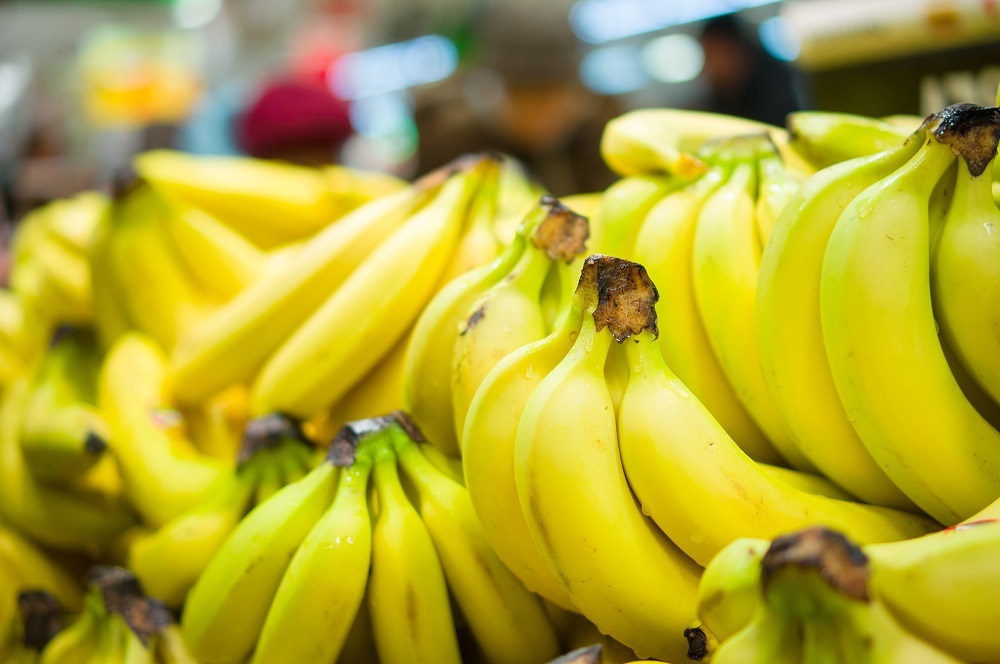Ecuadorian bananas lose edge in EU markets, see decreased export growth rate

Ecuador saw a 1.39% bump in its overall banana shipments between January and May of 2019 compared to the same period of the previous year. However, this rate of growth was much lower than that of the first five months of 2018 compared to 2017, during which there was an 8.17% increase, said Acorbanec.
What's more, although Ecuador exported a total of 158.32 million boxes in the first five months of this year, shipments to the European market experienced a decrease of 14.94%.
This lower figure responds to a "reduction in purchases from important markets such as the European Union and South America," Richard Salazar, executive director of Acorbanec, explained to PortalFrutícola.com.
Another factor was the effect of floods on the country's banana production, he added.
During the first five months of this year, 29.45% bananas dispatched were destined to the European Union; 22.01% to Russia; 13.60% to the Middle East; 10.55% to the U.S.; 7.93% to East Asia; 5.95% to South America; 4.55% to Eastern Europe; 4.52% to Africa; 0.99% to Oceania and 0.45% to EFTA.
Of the total volume of bananas dispatched during this period, 29.45% was destined to the European Union; 22.01% to Russia; 13.60% to the Middle East; 10.55% to the U.S.; 7.93% to East Asia; 5.95% to South America; 4.55% to Eastern Europe; 4.52% to Africa; 0.99% to Oceania and 0.45% to EFTA.
Evolution of banana exports from January to May (2018 - 2019)
Values expressed in boxes of 18.14 Kg
The downward behavior of the European Union materialized in a fall of 14.94% between January and May of 2019 compared to the same period of 2018.
The executive director of Acorbanec commented that "this is due to the fact that, in countries such as Italy, Germany, Belgium, and Poland, they have reduced their purchases, due to Central American countries (especially Guatemala) reacting to the market recovery that Ecuador saw by the Commercial Agreement especially in 2017 and 2018."
He added that this recovery in those origins reduced their prices, so that they were on average US$0.50 cents per box cheaper than Ecuador's offer.
"Thus we have that in Italy of 15.7 million boxes exported from January to May of 2018, this 2019 have been reduced by 48%; in Germany, 12.79 million boxes in 2018 have been reduced by 25% in 2019; in Belgium, 6.83 million boxes in 2018 have been reduced by 35% in 2019; in Poland of 6.83 million boxes exported in 2018, they were reduced by 29% in 2019, and thus, in other countries, "Salazar explained.
He noted the country also suffered "the loss of major markets such as the European Union and the U.S., which together represent 40.0% from January to May of 2019, and 45.11% in 2018".
Moreover, Salazar argued that the EU ceased to be the most profitable market for bananas because consumers demand a cheaper product; in spite of the tariff reduction by the Commercial Agreement, this pressured suppliers to offer cheaper bananas.
While Guatemala offered a US$0.50 cheaper banana during this year, Ecuador increased the price of the banana box in US$0.10, leading to the consequent loss of market, he emphasized.
"The trend of high temperatures in Europe is recurring in 2017, 2018 and this 2019 seems to be no exception. And lower purchases of bananas were reported in the last two summers, affecting prices in Ecuador. It seems that 2019 will be the same."
On the other hand, he explained that part of the decline in the different markets is due to prices from other sources.
"We have been displaced by international competition especially by Guatemala, Costa Rica and Colombia of important markets (the U.S. and EU); they have lower prices, shorter transport distances, and higher productivity than Ecuador.
"Part of that displacement is due to the straitjacket that Ecuador has - the Banana Law, issued 21 years ago and focused on the reality of that time and not the current one. If we add to this the system of banana taxation, especially in the export sector (where double taxation is evident), they have been affecting the competitiveness of Ecuadorian banana exports."
He concluded: "Guatemala, Colombia and Mexico continue to plant bananas to keep us moving away from the European Union.
"Meanwhile, in our country, we intend to pass a Banana Law worse than the one in force in the National Assembly, though it is hoped that good sense prevails."














































